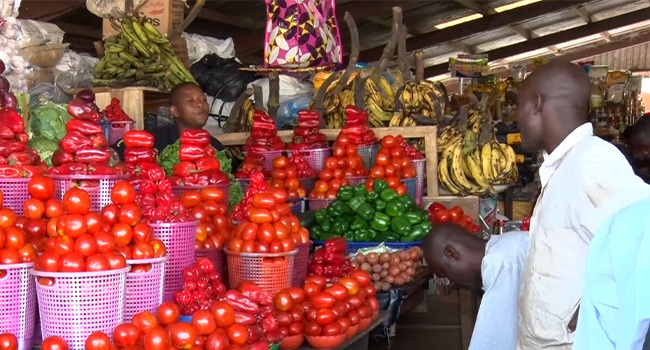Nigeria’s Inflation Rate Rises To 22.79%
The Consumer Price Index (CPI) for Nigeria increased from 22.41% in May 2023 to 22.79% in June.
This is supported by the most recent CPI report, which was made public on Monday by the National Bureau of Statistics (NBS).
The CPI calculates how quickly prices for goods and services fluctuate.
“Compared to May 2023, when it was 22.41%, the headline inflation rate increased to 22.79% in June 2023. Looking at the change, the headline inflation rate for June 2023 increased by 0.38% points when compared to the headline inflation rate for May 2023, according to the Bureau.
The research also revealed a sharp increase in food inflation, which rose from 20.60% in June 2022 to 25.25% on an annual basis.
Food prices increased by 2.40% in the reviewed month, which is 0.21% more than the rate seen in May 2023.
When compared to the 18.60% rate reported in June 2022, the year-over-year basis rate increased by 4.19%.
The headline inflation rate was 4.19% points higher on an annual basis than the rate that was registered in June 2022, which was 18.60%. This demonstrates that, when compared to the same month the year before (i.e., June 2022) the headline inflation rate increased in June 2023 on an annual basis.”
A food security emergency is declared by Tinubu.
President Bola Tinubu of Nigeria proclaimed a state of emergency over food security on July 13, 2023.
The National Security Council should have jurisdiction over all issues relating to the availability and price of food and water, which are necessities for survival.
The instruction was believed to be in line with his administration’s policy towards the support of the most vulnerable.
The President declared that he was conscious of the rising price of food and how it affected people’s wallets.
To lessen the effects of the elimination of subsidies, the President further ordered the immediate distribution of food and fertilisers to households and farmers.
“The Ministry of Agriculture and the Ministry of Water Resources must work together urgently to ensure adequate irrigation of farmlands and to ensure that food is produced all year long.” It was reported that the President said.
In addition to maintaining a strategic food reserve that will be utilised as a price stability mechanism for essential grains and other food commodities, we shall establish and support a National Commodity Board that will monitor and regularly assess food prices.
The government will control fluctuations in food prices through this board.The National Commodity Exchange (NCX), Seed Companies, the National Seed Council, research organisations, the NIRSAL Microfinance Bank, food processing and agricultural processing associations, private sector holders and Prime Anchors, smallholder farmers, crop associations, fertiliser producers, blenders, and supplier associations, to name a few, are on board to support President Bola Ahmed Tinubu’s intervention effort to accomplish this.
We will use our security infrastructure to defend the farms and the farmers so they can go back to their fields without worrying about being attacked.




